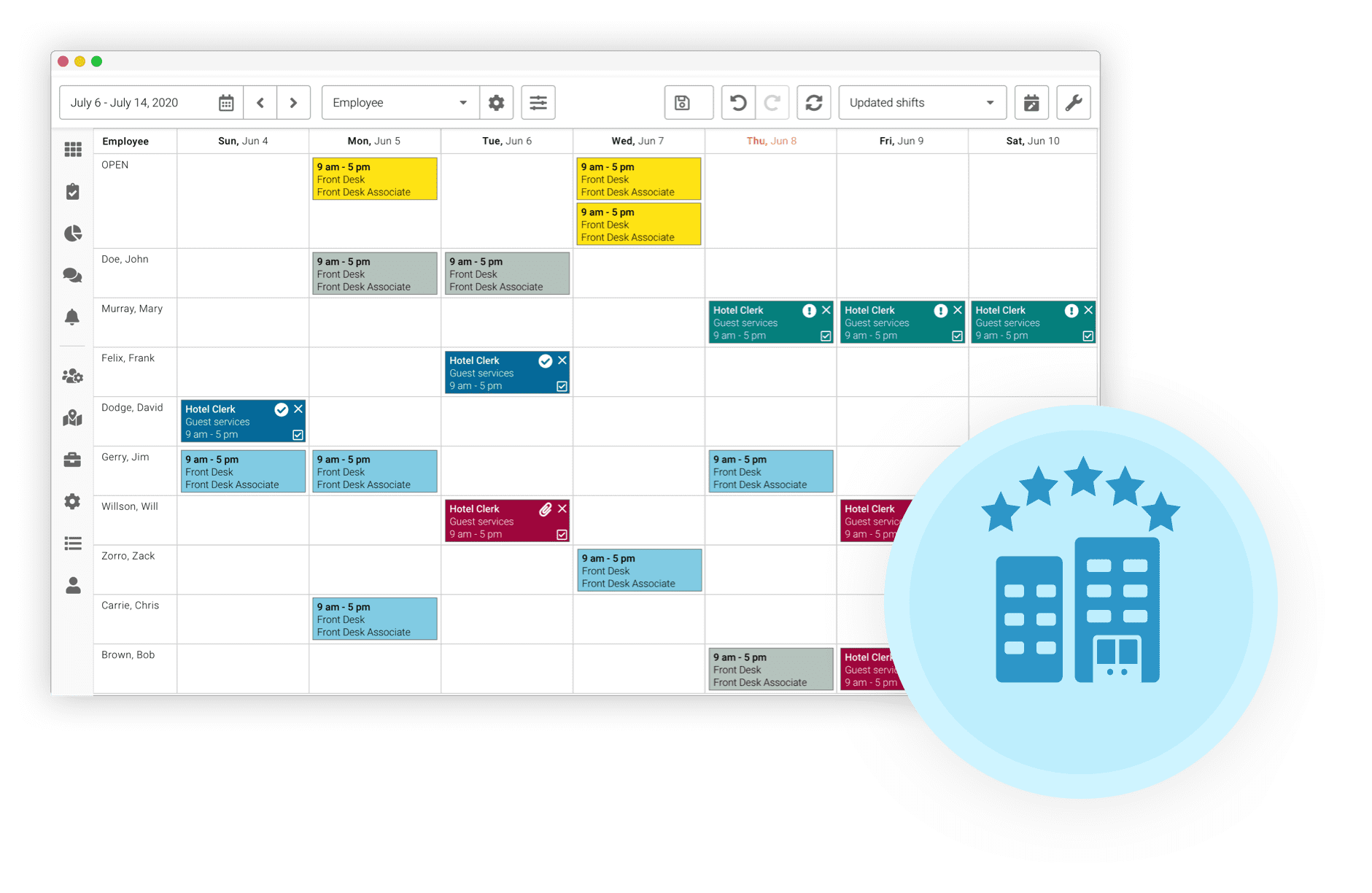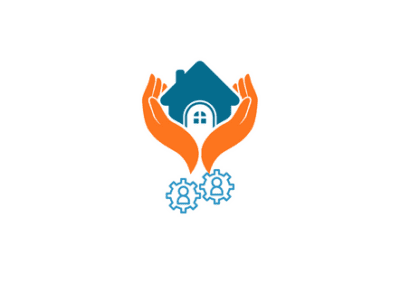The hospitality industry is, and always has been a huge portion of the U.S employment market. Generally, there is a low barrier to entry for new recruits making it a great option for first time workers. The hospitality industry covers a wide scope including hotels, leisure, food and beverage and even airlines, making up a broad range of workers. While the pandemic took its toll on the industry, it’s great to see most businesses returning to normal operations. Unfortunately, with that comes the notoriously high employee turnover rate.
The Current State of the Hospitality Industry
In order for us to fully understand the issue of employee turnover in the hospitality industry, we must understand the state of the industry as a whole. As we mentioned above, the pandemic impacted the hospitality industry in a way that could not have been anticipated. 2020 saw hotel occupancy hit a historic low at 44%. In 2022, we are seeing that bounce back with a current occupancy rate of 63.4% according to the American Hotel and Lodging Association’s 2022 report.
With the increased demand for hospitality services post-pandemic, businesses can charge more and pass that income into improved employee wages. However, the average hourly salary is $17 (or $33,150 annually) according to Talent.com. For comparison, the average salary at present in the US is $54,132, according to research. This might hint as to why the hospitality industry continues to see high employee turnover rates. Let’s look at some key reasons that people leave their hospitality jobs.
Why are people leaving their jobs in the Hospitality Industry?
In order to deal with, and try minimise high employee turnover in the hospitality industry, it’s important to understand the main causes of turnover. Once management understand these reasons, they can take the necessary steps to solve problems and reduce turnover in their company.
Seasonal Demand
One of the leading causes of high turnover in the hospitality industry is down to the nature of the industry itself. Most of us are aware of the seasonal demand that these businesses deal with. Depending on the business, there are generally high and low seasons. This can affect turnover in 2 ways.
- Employees cannot survive off the minimum hours provided to them during low seasons, and so look for work elsewhere.
- Businesses cannot afford to keep all staff during low seasons, and so contribute to involuntary turnover with mass layoffs.
Low Wages
As we mentioned above, the average salary in the hospitality industry is over $20,000 lower than the average salary in the US in general. While some businesses opt to only pay minimum wage plus tips to off-set the damage of low seasons, employees feel undervalued. Why should workers accept lower wages and poor benefits when they could get better elsewhere?
Workplace Culture
Unfortunately, the hospitality industry has become known as a breeding ground for toxic workplace culture. Low wages, aggressive customers and unresponsive management are just some of the factors that contribute to a poor workplace culture that forces employees to leave. Due to the “customer is always right” mindset that prevails in the hospitality industry, employees often feel unsupported when dealing with difficult customers. Pair that with poor management, low wages and potential bullying, and you have the perfect recipe for high employee turnover.
Inability to Work Remotely
While the pandemic has introduced the option of remote working to most industries, the hospitality industry, of course cannot offer that option to its workers. It can be difficult for employees to see their counterparts work from home 3 days a week for more money, while they commute to work every day for less pay. According to Gallup, 61% of employees look for greater work-life balance which includes WFH arrangements when job hunting in 2022. With that, the hospitality industry is struggling to offer alternatives to their employees.
Inflexible Schedules
Speaking of work-life balance, the hospitality industry traditionally doesn’t offer a whole pile of flexibility. Unlike an office job where employees can start/finish late or work through lunch to make appointments etc. Hospitality workers don’t always have that option. Not only are employee schedules generally inflexible, they are sometimes only distributed days before the beginning of the week. This makes it difficult for employees to plan their personal lives around work.
There are more potential reasons for the high turnover rates seen in the hospitality industry such as poor communication, “landing pad” syndrome and poor opportunity for growth and career development. However, by now you can see that there are many things employers need to deal with if they want to reduce turnover in their organization. So, how can they do that?
How to tackle turnover in the Hospitality Industry
Firstly, our advice to businessowners in the hospitality industry is to set realistic expectations. You will never completely eradicate turnover, but you can certainly reduce and manage it. For most industries, turnover sits around the 10-15% mark. According to the Bureau of Labor Statistics, the hospitality industry has a turnover rate of 70-80% – so there is lots of room for improvement. So, how can employers reduce turnover for their hospitality workers?
Offer Competitive Compensation
This is the glaringly obvious solution, right? And we know, it’s not easy to just fork out all of that money. However, when you calculate the cost of employee turnover it might be well worthwhile offering better pay for loyal employees. When turnover is high, you are paying the cost of lost knowledge, the cost of replacing the employee and the cost of paying staff overtime to fill gaps until an employee is replaced. That all adds up very quickly as more employees leave. If you can afford to pay your employees more or improve their benefits, that’s a great place to start. You’ll be surprised how quickly this reduces your employee turnover rate.
Provide Flexibility

Nowadays, there is no excuses for employers to not offer flexibility and work life balance to their employees. Employee scheduling software is an inexpensive solution to a wide range of workforce management issues, and generally offers some form of flexible scheduling. Celayix offers both self-scheduling and shift bidding for employees depending on how schedulers want to manage their staff. These flexible scheduling options paired with the Availability features of Celayix makes for a great solution for the hospitality industry. We’ve helped leading hotels transform their scheduling process to offer more to their employees, and they’ve reaped the rewards. When employees have autonomy over their schedule, they feel valued and are less likely to burnout.
Map out Career Advancement Opportunities
We mentioned “landing pad” syndrome earlier. This is where employees view jobs in the hospitality industry as temporary stop-gaps before moving onto bigger and better roles. However, this doesn’t have to be the case! When hiring or interviewing candidates for roles, make it clear that they will have opportunity for advancement after some time at the company. The hospitality industry is made up of teams that need team leaders, supervisors, managers and more to keep operations running smoothly. Hiring internally makes sense, so let your employees know that! When there is potential for growth and advancement, employees are far more likely to stick around and remain loyal.
Like most common workplace issues, these are not overnight fixes to your problems. However, they are something to keep in mind. As we mentioned above, we’ve been working with customers in the hospitality industry for over 20 years now by solving their workforce management issues. If you’d like to hear more about our leading software or see it in action, get in touch today!




